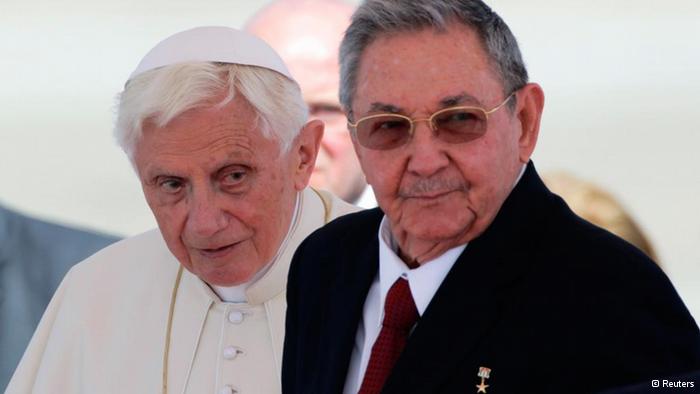We could debate whether a worldly church is less of a menace than one run by true believers (quite often, I reckon), but it can certainly make for some good stories:
MOSCOW — Facing a scandal over photographs of its leader wearing an enormously expensive watch, the Russian Orthodox Church worked a little miracle: It made the offending timepiece disappear.
Editors doctored a photograph on the church’s Web site of the leader, Patriarch Kirill I, extending a black sleeve where there once appeared to be a Breguet timepiece worth at least $30,000. The church might have gotten away with the ruse if it had not failed to also erase the watch’s reflection, which appeared in the photo on the highly glossed table where the patriarch was seated.
The church apologized for the deception on Thursday and restored the original photo to the site, but not before Patriarch Kirill weighed in, insisting in an interview with a Russian journalist that he had never worn the watch, and that any photos showing him wearing it must have been doctored to put the watch on his wrist.
The controversy, which erupted Wednesday when attentive Russian bloggers discovered the airbrushing, further stoked anger over the church’s often lavish displays of wealth and power.
…It is not likely that the apology will end the debate about the watch or dampen the increasingly barbed discussions of the church’s role in Russian society. Over the past decade, the church has grown immensely powerful, becoming so close to the Kremlin that it often seems like a branch of government. It has extended its influence into a broad range of public life, including schools, courts and politics. Patriarch Kirill publicly backed Vladimir V. Putin in last month’s presidential election.
Recently, church officials stoked the ire of Russian liberals by seeking the imprisonment of members of a female punk rock group who held an impromptu concert inside Moscow’s main cathedral in February to protest the church’s political ties. Three members of the group are now in jail awaiting trial…The watch, on the other hand, has been an object of fascination for years, and there is little question of its existence. It was first sighted on the patriarch’s wrist in 2009 during a visit to Ukraine, where he gave a televised interview on the importance of asceticism…
Perfect…
[T]he patriarch has presented himself as the country’s ethical compass, and has recently embarked on a vocal campaign of public morality, advocating Christian education in public schools and opposing abortion and equal rights for gay people.
Ah well.




